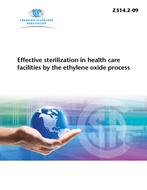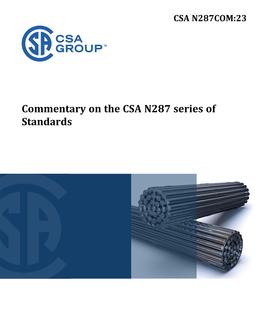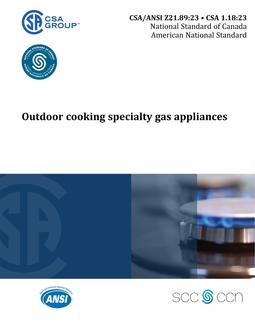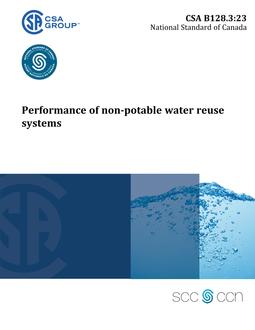
CSA Z314.2-09
- Comments Off on CSA Z314.2-09
- CSA
Click here to purchase
Preface
This is the fifth edition of CSA Z314.2, Effective sterilization in health care facilities by the ethylene oxide process. It supersedes the previous editions, published in 2001, 1991, 1984, and 1977. It is one of a series of CSA Standards dealing with the safe and effective sterilization of medical supplies and equipment.
Scope
1.1
This Standard specifies essential elements in implementing a program for using ethylene oxide to sterilize medical devices in health care facilities, with the object of achieving an adequate level of sterility assurance and minimizing the risk of injury to health care facility personnel and patients.
Notes:
(1) The term “health care facility” includes, but is not limited to, hospitals, nursing homes, extended-care facilities, clinics, medical and dental offices, and health units in industry.
(2) Comprehensive guidance for small, office-based facilities can be found in CSA PLUS 1112.
1.2
This Standard includes requirements for
(a) policies, procedures, and documentation;
(b) personnel qualifications and training;
(c) quality system;
(d) evaluation and purchase of reusable medical devices;
(e) work areas and equipment;
(f) preparation and packaging of medical devices requiring sterilization;
(g) sterilizer loading and operation;
(h) aeration following sterilization;
(i) storage of sterilized medical devices;
(j) sterility assurance, including process challenge device (PCD) construction and use; and
(k) maintenance and sterilizer quality assurance.
Note: PCD has replaced the term “test pack”.
1.3
This Standard does not apply to
(a) manufacturers’ requirements for construction and performance of ethylene oxide sterilizers;
Note: See CSA Z314.1.
(b) installation and ventilation of ethylene oxide sterilizers;
Note: See CSA Z314.9.
(c) decontamination of reusable medical devices prior to sterilization;
Note: See CSA Z314.8.
(d) single-use/disposable medical devices; or
Note: Information concerning safety, technology, cost/benefit, and legal issues involving the reuse of such devices is found in such publications as the Canadian Healthcare Association (1996) and ECRI Institute (1997).
(e) medical devices that have been used with patients who are known or suspected to have Creutzfeldt-Jakob Disease (CJD) or prion-related diseases.
Note: See Health Canada (2007).
1.4
In CSA Standards, “shall” is used to express a requirement, i.e., a provision that the user is obliged to satisfy in order to comply with the standard; “should” is used to express a recommendation or that which is advised but not required; “may” is used to express an option or that which is permissible within the limits of the standard; and “can” is used to express possibility or capability. Notes accompanying clauses do not include requirements or alternative requirements; the purpose of a note accompanying a clause is to separate from the text explanatory or informative material. Notes to tables and figures are considered part of the table or figure and may be written as requirements. Annexes are designated normative (mandatory) or informative (non-mandatory) to define their application.
Product Details
- Edition:
- 5th
- Published:
- 03/01/2009
- ISBN(s):
- 9781554910939
- Number of Pages:
- 106
- File Size:
- 1 file , 1.4 MB



